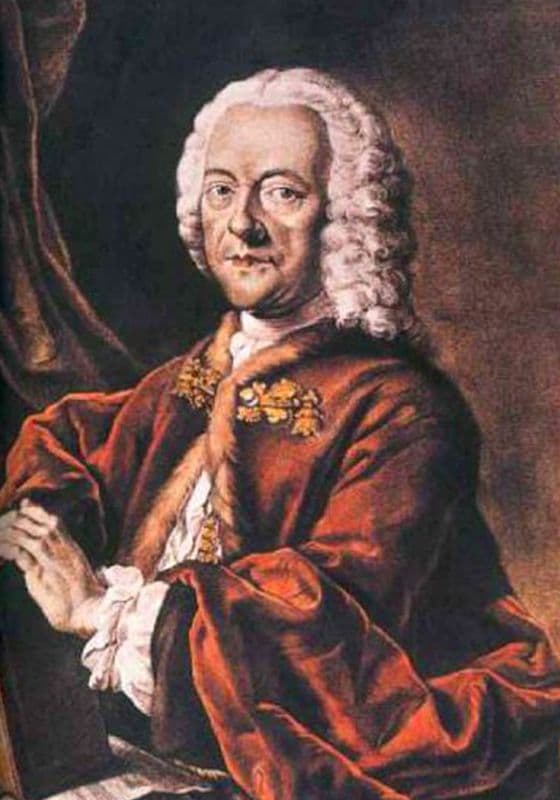Georg Philipp Telemann

Georg Philipp Telemann
Composer (1681–1767)
Prolific, playful, and endlessly inventive, Georg Philipp Telemann was one of the most admired composers of his age—praised by Bach, befriended by Handel, and adored by audiences across Europe. His astonishing output—over 3,000 works spanning every genre—captures the cosmopolitan spirit of the early Enlightenment, drawing on French elegance, Italian fire, Polish folk melodies, and the German contrapuntal tradition.
Born in Magdeburg and largely self-taught, Telemann defied his family’s wishes for him to become a lawyer and instead carved out a brilliant musical career. As music director in Hamburg for over four decades, he became a central figure in the city’s civic, sacred, and operatic life. His operas and oratorios dazzle with wit, colour, and dramatic pacing, always infused with his unique melodic gift and eye for character.
Telemann is often paired with Johann Sebastian Bach—not only because they were close contemporaries and friends, but because their careers intersected in meaningful ways. Telemann was godfather to Bach’s son, Carl Philipp Emanuel, and was initially offered the Leipzig post that Bach would later famously hold. While Bach’s music is revered for its intellectual rigour and spiritual gravity, Telemann offers an equally refined but often more lyrical, theatrical, and worldly counterpart. Together, they represent two pillars of the German Baroque—distinct in style but united in mastery.
Telemann’s music delights in contrast—bold harmonies balanced with graceful lines, and sacred texts delivered with theatrical urgency. He had a keen sense of drama and human psychology, able to turn biblical narratives into vivid moral theatre and comic tales into refined musical gems.
While later overshadowed by Bach’s towering legacy, Telemann’s music has enjoyed a thrilling revival in recent decades, revealing a composer of immense depth, charm, and emotional range. At Pinchgut Opera, we celebrate Telemann not as a historical footnote but as a vibrant, essential voice of the Baroque—alive with imagination and utterly of his time, yet startlingly fresh to modern ears.
